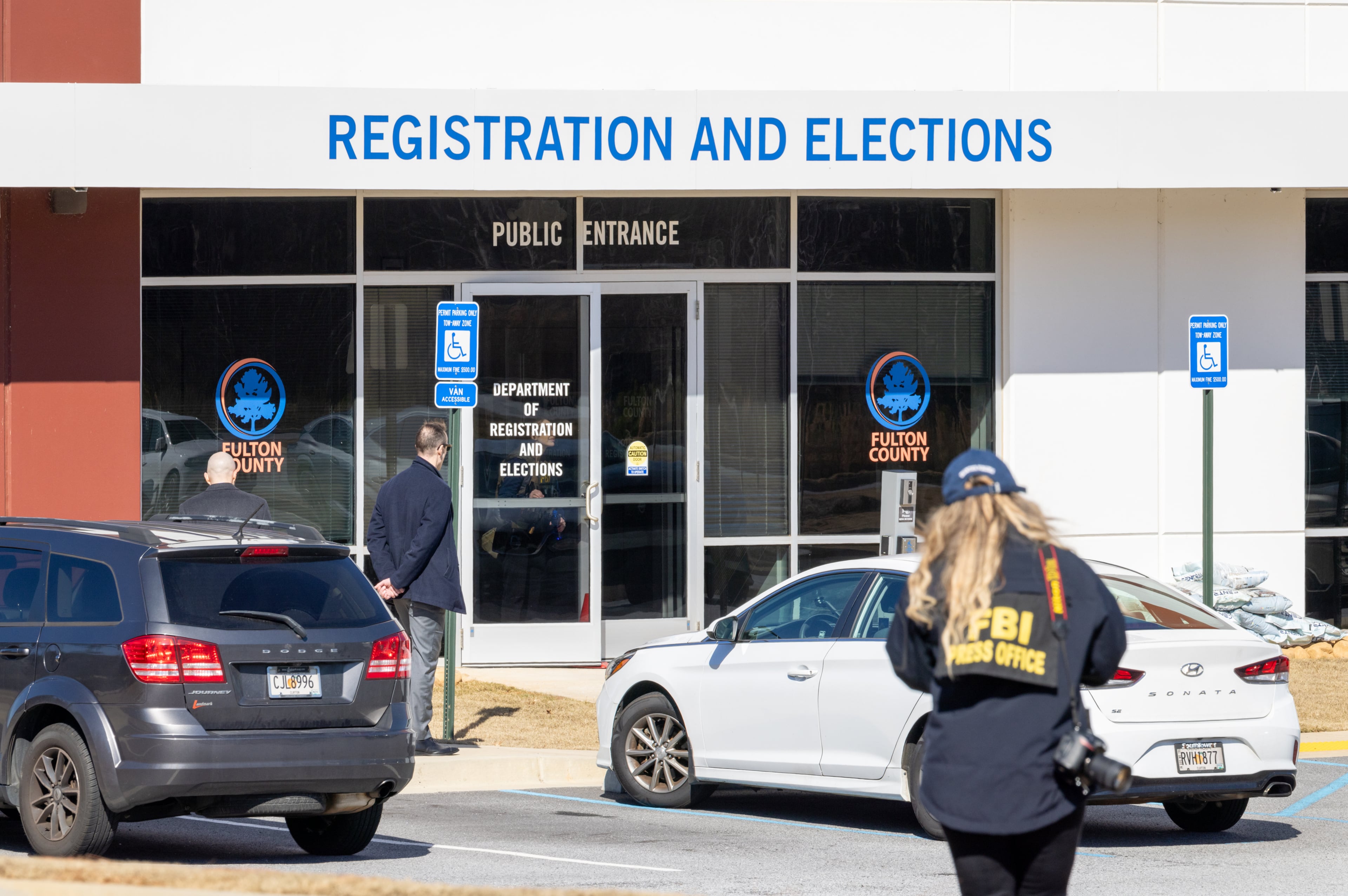Stockbridge has day in Ga. Supreme Court to stop Eagle’s Landing cityhood
With less than a month before voters go to the polls, attorneys for Stockbridge on Tuesday asked the Georgia Supreme Court to stop the upcoming referendum that threatens to tear the city in half to create a new city of Eagle's Landing.
Their contention: That the ballot question violates the state Constitution by asking voters to approve two ballot questions simultaneously. One asks them to approve the creation of Eagle’s Landing cityhood while at the same time requiring them to approve de-annexing a portion of Stockbridge to form the new city.

Such a move would violate the Constitution’s single-subject rule set to ensure voters clearly understand referendums when they cast their ballots, they argue.
“No bill shall pass which refers to more than one subject matter or contains matter different from what is expressed in the title thereof,” former Georgia attorney general Mike Bowers, who is represents Stockbridge, read to the court from the Constitution.
But Tim Tanner, a partner in the law firm Coleman Talley, who represents Eagles Landing advocates, said the General Assembly legislation that approved the ballot question was clearly designed to address different queries on a related matter.
“I believe these are two separate bills that call for two separate things,” he said.
The court fight is critical to Stockbridge, which is trying to beat back the secession of Eagle's Landing — a collection of well-heeled communities in the Henry County city's southern end. If voters on Nov. 6 approve the secession, Stockbridge would lose half its population and businesses, a development that leaders say would hobble the city financially.
The legal battle and upcoming referendum are being watched closely by municipal officials across Georgia. It would be the first time in the state that a new city was created by annexing portions of another city. Critics say if this became a trend it could have a destabilizing impact across communities if more affluent areas break away to form their own cities.
In addition to the Supreme Court, the city is seeking an injunction in federal court on the grounds the referendum violates the Voting Rights Act of 1965 and the 14th Amendment’s equal protection clause.
It also has joined Capital One's municipal bond arm in another federal lawsuit over how the city will repay loans if it loses significant part of its tax base to Eagle's Landing.

On Tuesday, justices asked tough questions of both sides, pushing back on Stockbridge attorneys’ argument that the two questions could be confusing to voters and challenging Tanner to defend why it would not have been easier to structure the vote in a single question.
“They were traveling together, they were voted on consecutively in the Senate, why can’t we analyze them together under this particular constitutional challenge,” Justice Nels S.D. Peterson asked Bowers, referring to two acts that passed the General Assembly this year to create the referendum — 548 and 559.
He later told Tanner, “It’s not clear to me why you couldn’t, consistent with a single subject matter rule properly understood, have one bill that creates a city and transfers land into that city. The fact that it transfers it out of another city to do that doesn’t seem inconsistent with our broader single subject matter jurisprudence.”
Much of the discussion got into the arcane questions about the timeline of what would happen should Eagle's Landing become a city. Would it elect a mayor, council and staff between Nov. 6 and January, when they had nothing to oversee? Does the referendum call for the city to be established first followed by the de-annexation of Stockbridge? In which order did Gov. Nathan Deal sign the legislation into law and would it have an impact on their question of whether the referendum violates the single-subject rule.
The justices also wondered that if they failed to find the referendum violates the single-subject rule, would it set a new precedent and open the door to more ballot questions with combined or multiple subjects.
“The value of the single subject is to make sure that the voter, the citizen or the taxpayer is aware and not duped,” Justice Charles Bethel said.


